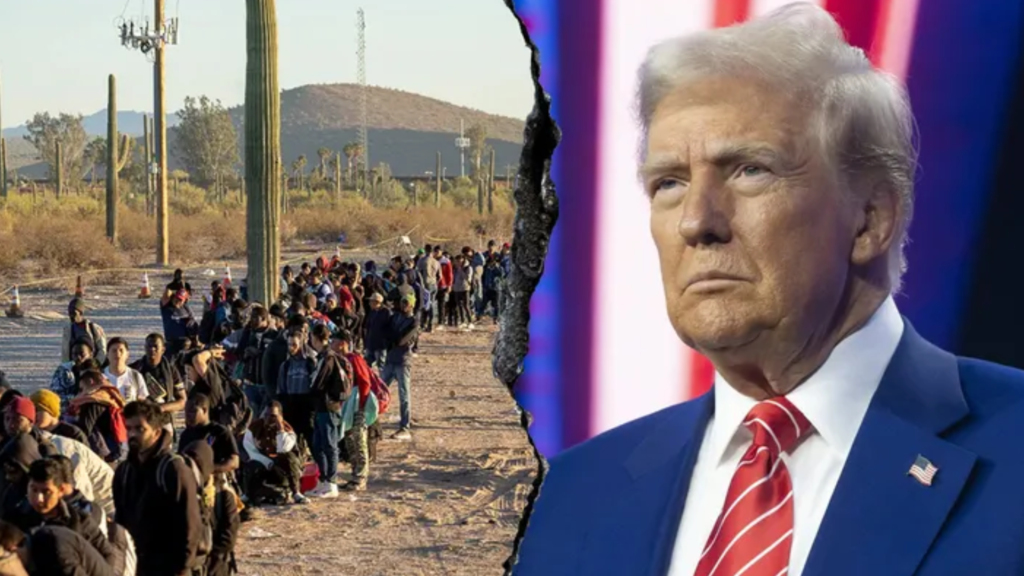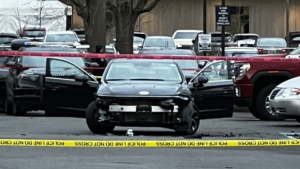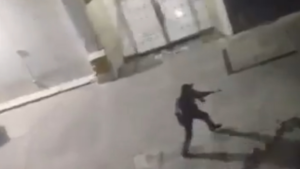
A federal appeals court has blocked the Trump administration’s request for a stay on lower court rulings that have blocked the deportation flights of Venezuelan nationals under the Alien Enemies Act, a wartime law dating back to 1798.
In a 2-1 ruling on Wednesday, a three-judge panel of the D.C. Circuit Court of Appeals sided with the plaintiffs, further limiting the Trump administration’s authority to move forward with its deportation flights.
The case was heard by Judges Karen Henderson, Patricia Millett, and Justin Walker, who presided over oral arguments on Monday after agreeing to fast-track the case.
During the hearing, Judge Millett, an Obama appointee, emerged as the most vocal critic of the administration’s legal position. She challenged Justice Department attorney Drew Ensign on whether the deportation process provided Venezuelan nationals with due process rights, particularly the opportunity to challenge their removal through habeas corpus petitions before being placed on deportation flights.
In a concurring opinion, Judge Henderson, a Bush appointee, justified the court’s refusal to issue a stay, arguing that the government had not demonstrated a likelihood of success on the merits:
“At this early stage, the government has yet to show a likelihood of success on the merits. The equities favor the plaintiffs. And the district court entered the TROs for a quintessentially valid purpose: to protect its remedial authority long enough to consider the parties’ arguments.”
The ruling marks a significant blow to the administration’s attempt to swiftly deport Venezuelan nationals, and the case is now expected to be appealed to the Supreme Court for final resolution.
In response to the ruling, Attorney General Pam Bondi harshly criticized federal judges for interfering in immigration matters, arguing that these rulings overstep judicial authority.
During an appearance on Fox News’ “Sunday Morning Futures,” Bondi vowed to escalate the case to the Supreme Court if necessary:
“This is an out-of-control judge, a federal judge, trying to control our entire foreign policy, and he cannot do it.”
Bondi’s comments reflect growing frustration among Trump administration officials who view the court’s intervention as a direct challenge to the president’s authority to enforce immigration policies.
At the heart of the case is the Trump administration’s decision to invoke the Alien Enemies Act, a law from 1798 that grants the president wartime authority to remove foreign nationals deemed threats to national security.
The administration used this law to immediately deport Venezuelan nationals, including alleged members of the Tren de Aragua (TdA) gang, a notorious criminal organization with ties to drug trafficking and violent crime.

However, U.S. District Judge James Boasberg issued a temporary restraining order (TRO) blocking these deportations last weekend, arguing that the courts needed more time to assess the legality of the policy.
The administration responded with an emergency appeal, calling the ruling a “massive, unauthorized imposition on the Executive’s authority to remove dangerous aliens who pose threats to the American people.”
Despite Boasberg’s restraining order, reports surfaced that planes carrying hundreds of deported Venezuelan nationals had already arrived in El Salvador.
Boasberg then took the extraordinary step of ordering the administration to return any planes carrying Venezuelan nationals or other migrants deported under the Alien Enemies Act back to the U.S.
The Trump administration’s lack of compliance with Boasberg’s order sparked heated exchanges in court.
During Monday’s appellate hearing, DOJ lawyers faced intense questioning from the judges over whether individuals designated as TdA gang members were given any opportunity to challenge their deportation status.
Judge Millett pressed DOJ attorney Drew Ensign, suggesting that the administration moved too quickly:
“If the Trump administration’s argument is that the restraining order handed down by a lower court judge last week is an intrusion on the president’s war powers, and [that] the courts are paralyzed to do anything, then that’s a misreading of precedent.”
She further emphasized that the president must still comply with the Constitution, even when invoking emergency powers under the Alien Enemies Act.
As part of his ongoing oversight of the case, Judge Boasberg ordered the administration to provide more information about the timing and execution of deportation flights.
However, DOJ officials repeatedly refused, citing concerns over national security and sensitive diplomatic negotiations.
In a reply brief to the D.C. Circuit Court of Appeals, Trump administration lawyers pushed back, accusing the district court of “intrusive inquiries” that could hamper future diplomatic efforts.
The administration submitted a six-paragraph declaration from an ICE regional director in Texas, explaining that senior officials were actively considering whether to invoke the “state secrets privilege” to shield details of the deportation process from court scrutiny.

Judge Boasberg, growing frustrated with the lack of cooperation, directly questioned government attorneys on their credibility during a district court hearing: “So, your clients had you come argue this but kept you in the dark about it?”
He then issued a stern warning to the DOJ’s legal team: “I often tell my clerks before they go out to practice law, that the most valuable thing they have is their reputation and their credibility. I would ask that your team retain that lesson.”
Boasberg made it clear that he intends to hold the administration accountable for complying with his orders, stating: “The government isn’t being forthcoming… but I will get to the bottom of if they complied with my order, who violated the order, and what the consequences are.”
With the appellate court ruling against the Trump administration, all eyes now turn to the Supreme Court, which could ultimately decide the fate of the Alien Enemies Act deportation policy.
If the high court agrees to hear the case, it will determine whether the president’s authority under the 1798 law supersedes judicial oversight and whether due process protections apply to those targeted for deportation under emergency orders.
For now, the ruling represents a significant legal and political obstacle for Trump’s immigration policies, setting up yet another high-stakes legal battle over the limits of executive power in matters of national security and immigration enforcement.



